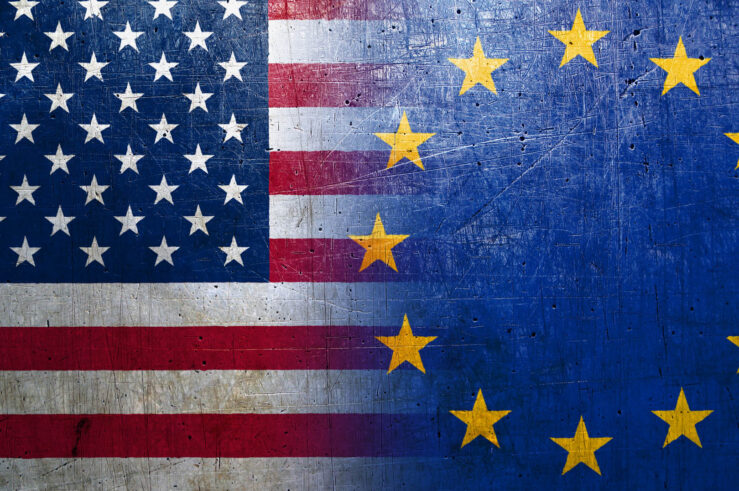Showing results for: “premium natural and organic”
Technology Mergers and the Market for Corporate Control
In recent years, a growing chorus of voices has argued that existing merger rules fail to apprehend competitively significant mergers, either because they fall below existing merger-filing thresholds or because they affect innovation in ways that are purportedly ignored. These fears are particularly acute in the pharmaceutical and tech industries, where several high-profile academic articles ... Technology Mergers and the Market for Corporate Control
How US and EU Competition Law Differ
U.S. and European competition laws diverge in numerous ways that have important real-world effects. Understanding these differences is vital, particularly as lawmakers in the United States, and the rest of the world, consider adopting a more “European” approach to competition. In broad terms, the European approach is more centralized and political. The European Commission’s Directorate ... How US and EU Competition Law Differ
How Changing Section 230 Could Disrupt Insurance Markets
In recent years, a diverse cross-section of advocates and politicians have leveled criticisms at Section 230 of the Communications Decency Act and its grant of legal immunity to interactive computer services. Proposed legislative changes to the law have been put forward by both Republicans and Democrats. It remains unclear whether Congress (or the courts) will ... How Changing Section 230 Could Disrupt Insurance Markets
Going Back to Antitrust Basics
Advocates of legislative action to “reform” antitrust law have already pointed to the U.S. District Court for the District of Columbia’s dismissal of the state attorneys general’s case and the “conditional” dismissal of the Federal Trade Commission’s case against Facebook as evidence that federal antitrust case law is lax and demands correction. In fact, the ... Going Back to Antitrust Basics
The Virtues and Pitfalls of Economic Models
Interrogations concerning the role that economic theory should play in policy decisions are nothing new. Milton Friedman famously drew a distinction between “positive” and “normative” economics, notably arguing that theoretical models were valuable, despite their unrealistic assumptions. Kenneth Arrow and Gerard Debreu’s highly theoretical work on General Equilibrium Theory is widely acknowledged as one of ... The Virtues and Pitfalls of Economic Models
Against the Jones Act
Economist Josh Hendrickson asserts that the Jones Act is properly understood as a Coasean bargain. In this view, the law serves as a subsidy to the U.S. maritime industry through its restriction of waterborne domestic commerce to vessels that are constructed in U.S. shipyards, U.S.-flagged, and U.S.-crewed. Such protectionism, it is argued, provides the government ... Against the Jones Act
The FTC Did Not ‘Fumble the Future’ in Its Google Search Investigation
Politico has released a cache of confidential Federal Trade Commission (FTC) documents in connection with a series of articles on the commission’s antitrust probe into Google Search a decade ago. The headline of the first piece in the series argues the FTC “fumbled the future” by failing to follow through on staff recommendations to pursue ... The FTC Did Not ‘Fumble the Future’ in Its Google Search Investigation
The Problem of Data Property Rights
Policy discussions about the use of personal data often have “less is more” as a background assumption; that data is overconsumed relative to some hypothetical optimal baseline. This overriding skepticism has been the backdrop for sweeping new privacy regulations, such as the California Consumer Privacy Act (CCPA) and the EU’s General Data Protection Regulation (GDPR). ... The Problem of Data Property Rights
Investors and Regulators Can Both Fall for Platform Bubbles
In current discussions of technology markets, few words are heard more often than “platform.” Initial public offering (IPO) prospectuses use “platform” to describe a service that is bound to dominate a digital market. Antitrust regulators use “platform” to describe a service that dominates a digital market or threatens to do so. In either case, “platform” denotes power ... Investors and Regulators Can Both Fall for Platform Bubbles
The DOJ’s Antitrust Case Against Google: A Tough Slog, but Maybe an Intriguing Possibility?
The U.S. Department of Justice’s (DOJ) antitrust case against Google, which was filed in October 2020, will be a tough slog.[1] It is an alleged monopolization (Sherman Act, Sec. 2) case; and monopolization cases are always a tough slog. In this brief essay I will lay out some of the issues in the case and raise ... The DOJ’s Antitrust Case Against Google: A Tough Slog, but Maybe an Intriguing Possibility?
Why the Federal Government’s Antitrust Case Against Google Should—and Likely Will—Fail
On October 20, 2020, the U.S. Department of Justice (DOJ) and eleven states with Republican attorneys general sued Google for monopolizing and attempting to monopolize the markets for general internet search services, search advertising, and “general search text” advertising (i.e., ads that resemble search results). Last week, California joined the lawsuit, making it a bipartisan ... Why the Federal Government’s Antitrust Case Against Google Should—and Likely Will—Fail
The Case Against Google Advertising: What’s the Relevant Market and How Many Are There?
U.S. antitrust regulators have a history of narrowly defining relevant markets—often to the point of absurdity—in order to create market power out of thin air. The Federal Trade Commission (FTC) famously declared that Whole Foods and Wild Oats operated in the “premium natural and organic supermarkets market”—a narrowly defined market designed to exclude other supermarkets ... The Case Against Google Advertising: What’s the Relevant Market and How Many Are There?












